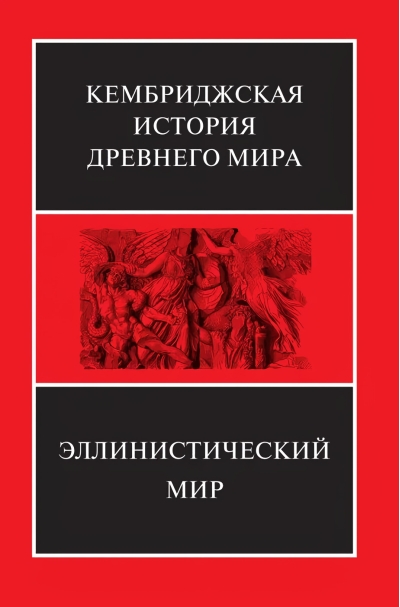The Cambridge Ancient History. Volume VII. Book 1. The Hellenistic World
49.99 €
The only thing available 1
In the first English edition of The Cambridge Ancient History, its seventh volume, published in 1928, covered under one binding both the history of the Hellenistic world from the Battle of Ipsus in 301 B.C. to the Peace of Navpacta and the Battle of Raphia in 217 B.C., and the history of Rome from its foundation to the same final date. In the first edition the volume had the title "The Hellenistic Monarchies and the Rise of Rome." In the new English edition, from which the Russian translation has been made, the Greek and Roman sections have been placed, each in its own book, and are presented as two separate parts of one volume. This book contains the first part, which opens with events after the death of Alexander the Great in 323 B.C.; it is this date and these events, and not the Battle of Ipsus, that it is more logical to take as the starting point of Hellenistic history; but the editors of the new edition have retained 217 B.C. as the final date, since, as Polybius notes, it was from this point that Rome began to play an increasing role in Greek affairs. Each chapter of the first part was written anew by a specialist on a particular topic (the author's team consisted of anticologists from Great Britain, France, Italy, Germany and Canada), which allowed to take into account a huge amount of new material that became available during the period from the late 20s to the 80s of the XX century. Separate chapters are devoted to the three largest Hellenistic kingdoms: Egypt in the time of the Ptolemies, Seleucid Asia and Macedonia, as well as mainland Greece, Sicily and smaller states, including Pergamum. The material is characterized by a full presentation of political events, which are comprehensively assessed, but the military aspects are given much less attention than in the first edition. The space thus saved has been given to chapters on historical sources, the institution of monarchy as such and its framing ideology, basic cultural, social, and economic aspects of the Hellenistic world, and the development of Hellenistic science, especially with regard to its peacetime and wartime applications.
This authoritative account of a wide variety of aspects of the early Hellenistic world is intended for both specialists and the general reader.
This authoritative account of a wide variety of aspects of the early Hellenistic world is intended for both specialists and the general reader.
See also:
- All books by the publisher
- All books in the series Cambridge History of the Ancient World




